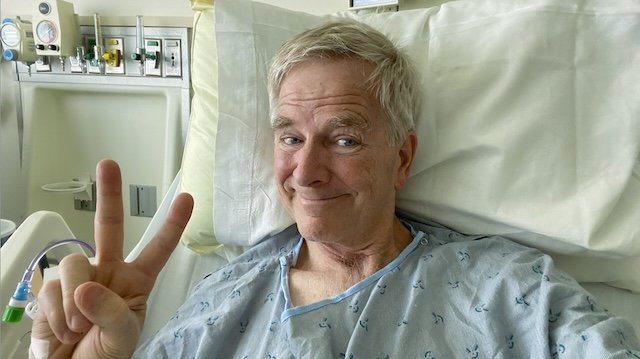A Novel Surgical Option for Prostate Cancer Offers Hope, Particularly for Elderly Men
The challenge of efficiently treating prostate cancer, the second most frequent cancer in males worldwide, without doing more harm than good has long existed. For older men who have been urged to "watch and wait" for far too long, however, a new surgical option is already showing great promise.

Let us discuss what this entails from a human perspective as well as a medical one.
The Problem of Older Men's Prostate Cancer
Older men with prostate cancer have to deal with two painful extremes for years:
aggressive radiation therapy or surgery, which frequently carries hazards including incontinence or sexual dysfunction and lengthy recovery periods."Active surveillance," in which medical professionals keep an eye on the malignancy while delaying treatment—sometimes indefinitely.
The choice between receiving therapy that could negatively affect quality of life or doing nothing and hoping it does not spread is challenging. This limbo is emotionally draining for many older guys.
This new surgical option feels like a breakthrough since it is focused, less intrusive, and kinder to the body.
What is the New Method?
The process in the news is termed focused treatment, which encompasses methods such as:
Ultrasound with high-intensity focus (HIFU)
Freezing malignant tissue is known as cryotherapy.
Ablation by laser
Focused laser therapy guided by MRI
In contrast to conventional surgery, focused therapies preserve surrounding tissue and function by focusing exclusively on the prostate's malignant area. This implies:
Reduced complications
Quicker recuperation
decreased chance of long-term adverse effects
The secret is that it is most effective for men, many of whom are older, who have slow-growing, localized prostate cancer.
The Significance of This for Elderly Men
It is common to advise elderly patients to "wait it out." Even "low-risk" cancer can have a negative impact on relationships, mental health, and everyday peace of mind if left untreated.
This surgical substitute provides:
A compromise between excessive and insufficient therapy
Empowerment, which enables men to act without jeopardizing their autonomy
An opportunity to maintain quality of life, which grows increasingly valuable as one ages
Seeking a cure at all costs is not the goal. It is about managing the realities of a diagnosis while leading a fulfilling life.
What Are the Findings of the Research?
For some individuals, particularly older men with intermediate-risk prostate cancer, focused therapy produces excellent cancer control outcomes, according to recent research.
According to a 2024 study in The Lancet Oncology, HIFU had less sexual and urinary adverse effects while having cancer control rates that were on par with radical prostatectomy.
Patients expressed less regret regarding their treatment decision and more satisfaction.
Furthermore, this is hardly fringe medicine given the annual advancements in robotic aid, real-time monitoring, and MRI precision. This is how prostate cancer will be treated in the future.
Open Communication: Inquiries to Make of Your Physician
Ask your urologist the following if you or a loved one has been diagnosed with prostate cancer:
Do I have cancer?
Does focused therapy apply to me?
In contrast to standard surgery, what are the risks?
Will this treatment be covered by my insurance?
To what extent does the care team have experience with this procedure?Keep in mind that there is no one-size-fits-all approach to treatment, and seeking the finest care should not be limited by age.
What's Your Reaction?




















